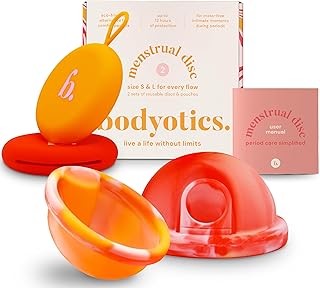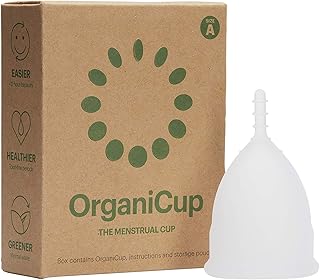Menstruation, a natural process that marks a significant part of many individuals’ lives, also contributes to a substantial environmental issue. The average menstruator spends approximately 3,000 days menstruating, leading to the disposal of around 12,000 pads or tampons per person. Unfortunately, most of these sanitary products contain plastic, resulting in significant environmental consequences.
Plastic-based period products, when disposed of, end up in landfills or find their way into the oceans, contributing to pollution. This has sparked global concern, prompting a movement towards ‘environmenstrual’ alternatives. One such advocate for sustainable period care is Ella Daish, the founder of the global #EndPeriodPlastic campaign.
Ella Daish emphasizes the importance of transitioning to plastic-free disposable pads and tampons, which are typically made from plant-based materials like cotton and bamboo. These products offer a biodegradable and organic option, reducing the environmental impact compared to traditional plastic-based alternatives.
For those seeking waste-free options, reusable cloth pads have emerged as a sustainable choice. These pads, available in various shapes and sizes, offer a long-lasting and cost-effective solution. While they require maintenance such as washing between uses, they provide a practical and eco-friendly alternative to disposable pads.
Another popular choice gaining momentum in the realm of sustainable period care is period underwear. With a variety of sizes, styles, and absorbency levels, period undies offer a reusable and low-to-no waste option for managing menstruation. Despite the initial cost and maintenance involved, period underwear provides a comfortable and environmentally conscious choice for many individuals.
Menstrual cups, a tried-and-tested solution, have seen a surge in popularity in recent years. These bell-shaped devices, made from bendy silicone, collect menstrual blood instead of absorbing it like tampons. With a focus on longevity and minimal waste, menstrual cups offer a cost-effective and sustainable option for managing periods.
For those interested in an alternative to menstrual cups, menstrual discs provide another option for collecting blood. While they offer similar benefits in terms of sustainability and long-lasting use, menstrual discs differ in design and placement within the vaginal canal.
While reusable tampons made from knitted, crocheted, or fabric materials are available, caution is advised when opting for such alternatives due to safety concerns and lack of regulation. Medical experts stress the importance of using approved period products to prevent potential health risks associated with unregulated options.
Sea sponges, marketed as ‘natural’ tampons, have also raised concerns among gynaecologists due to potential health risks associated with their use. Medical professionals advise against using sea sponges for menstrual care, citing risks of harmful debris and bacterial contamination.
As the movement towards sustainable period care gains momentum, it is essential for individuals to make informed choices that prioritize both their health and the environment. By exploring a range of plastic-free and eco-friendly options, menstruators can contribute to reducing waste and promoting sustainable menstruation practices.
📰 Related Articles
- Eco-Friendly Pet Grooming Products for Sustainable Care
- Top 8 Reusable Sanitary Pads for Sustainable Menstrual Care
- The Packaging People Enhance Eco-Friendly E-commerce Packaging Solutions for Sustainable Business Practices
- Sustainable Women’s Health Brands Address Period Poverty and Sustainability
- Sustainable Weddings: Eco-Friendly Choices for a Greener Celebration






